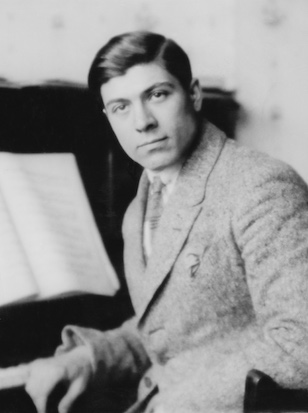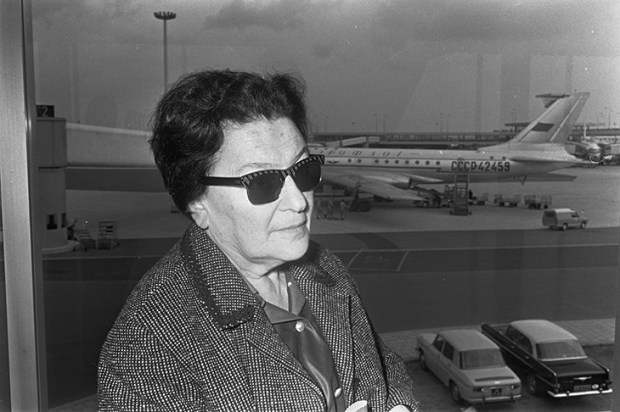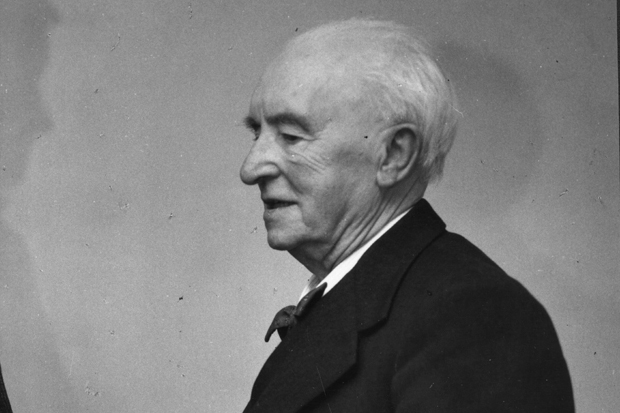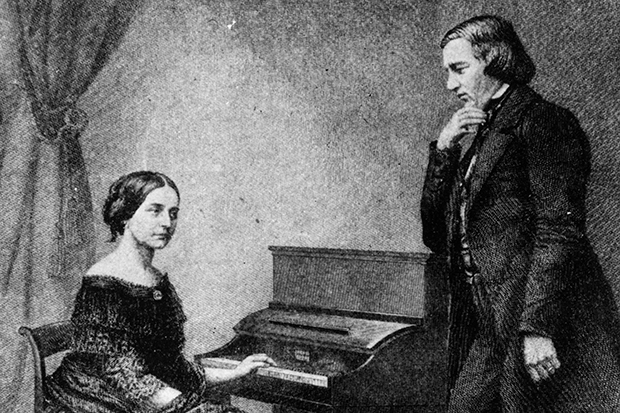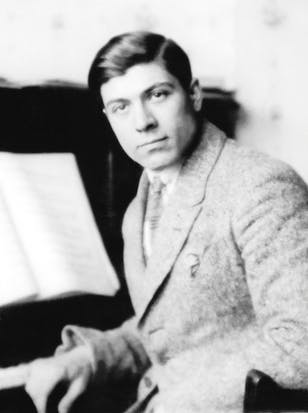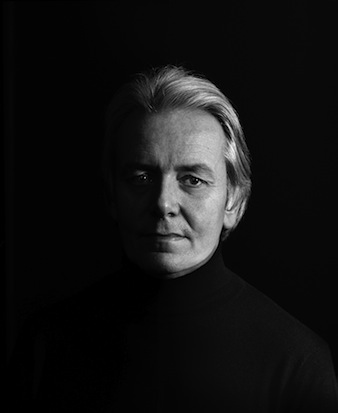William Kapell was an American concert pianist with the looks of a male model and the fingers of a wizard. He played the concertos of Rachmaninov at dashing speed but with delicate precision. He was snapped up by RCA in 1944 at the age of 22 and the world’s leading conductors queued up to accompany him.
In October 1953 he toured Australia. On his last night there he visited Jascha Spivakovsky, a pianist who had escaped the Russian pogroms as a child, settled in Berlin and then fled to Melbourne after Richard Strauss warned him that he was on a Nazi hit-list. He spent the war helping fellow émigrés escape. That was one reason he never signed a recording contract. Also, Australia didn’t have a classical label. When Spivakovsky died in 1970 he hadn’t made a single record as a soloist.
That night, Spivakovsky played Kapell the slow movement of Chopin’s ‘Funeral March’ Sonata. The next day, Kapell headed back to the US, telling reporters at the airport that he wouldn’t be coming back — some Australian critics had been rude and he was notoriously thin-skinned. As his plane approached San Francisco in the fog, it hit the treetops and crashed; everyone was killed.
Kapell’s all-too-few recordings are treasured. Spivakovsky has been forgotten. In his prime he performed with Fürtwängler, Knappertsbusch, Szell and Monteux. His Carnegie Hall debut in 1948 was a triumph. The Daily Telegraph called him ‘one of the greatest pianists of our time’. After hearing him play Beethoven’s last piano sonata, Neville Cardus wrote him a fan letter — ‘you entered the sublime world of the work with an intent, unselfconscious eloquence which brought me close to tears’.
But how are we to judge these verdicts if we can’t hear him? Well, now we can. The first Jascha Spivakovsky CD was issued in the spring; another is coming in October. Why has it taken so long?
Actually, the fact that they’re appearing at all is a small miracle. These are mostly home recordings, made by Jascha’s son Michael in the 1960s while his father was rehearsing for concerts. Spivakovsky didn’t always know he was being taped. Michael would tell him, ‘I’m just checking for sound levels, Dad.’
The mono reel-to-reel tapes, stored in an old sea chest, quickly deteriorated; they were copied on to new tapes, but they also started to disintegrate. Also, as Michael told me last weekend, the quality of reproduction wasn’t great in the first place. ‘Jascha’s sound was extraordinary, and picking it up with a little plastic microphone was like fitting an ocean into a bottle,’ he said.
It was Eden Spivakovsky who insisted that his grandfather’s playing should be introduced to the public. ‘My grandmother was old-school — she and Jascha were both humble people — and she didn’t want to push things. Dad respected that. But I’m a bit more brash.’
After the tapes were saved in digital format they were ‘restored’ — but the results were horrible. That’s no surprise: most digital remasterings of vintage pianists are botched jobs in which tonal colour is scraped away along with the hiss. But Eden refused to give up. Finally he got in touch with Andrew Rose, a former BBC sound engineer whose praises I’ve sung before. Rose performed the equivalent of open-heart surgery on the recordings. He gently lifted off the hiss, correcting the pitch and the tonal inaccuracies of the microphone. Then — his signature touch — he added some ambience, in this case from a concert hall at Santa Cecilia in Rome that is ideal for solo pianos.
So far I’ve only listened to the first CD, issued on Rose’s Pristine Classical label. It includes the Bach-Liszt Fantasy and Fugue in G minor, Beethoven’s ‘Waldstein’ Sonata and Chopin’s First Ballade. All three justify Michael Spivakovsky’s claim that his father’s sound was extraordinary — and unique. The touch is crystalline; the rubato subtle but ingenious, illuminating tiny phrases in the Beethoven that I’d never even noticed. Spivakovsky’s finger control is so powerful that he can produce three or four dynamics simultaneously. This pays glorious dividends in the Bach fugue, where you could almost be listening to separate organ pipes.
It’s risky to make a judgment on the basis of just one disc: we’ll have a clearer picture when we can hear the fabled Beethoven Op. 111 in Volume Two, out in the autumn. Right now, however, I’m tempted to go further than Rose’s description of Jascha Spivakovsky as ‘the greatest pianist you’ve never heard of’. He may well be one of the greatest pianists I’ve ever heard.
Got something to add? Join the discussion and comment below.
You might disagree with half of it, but you’ll enjoy reading all of it. Try your first month for free, then just $2 a week for the remainder of your first year.

